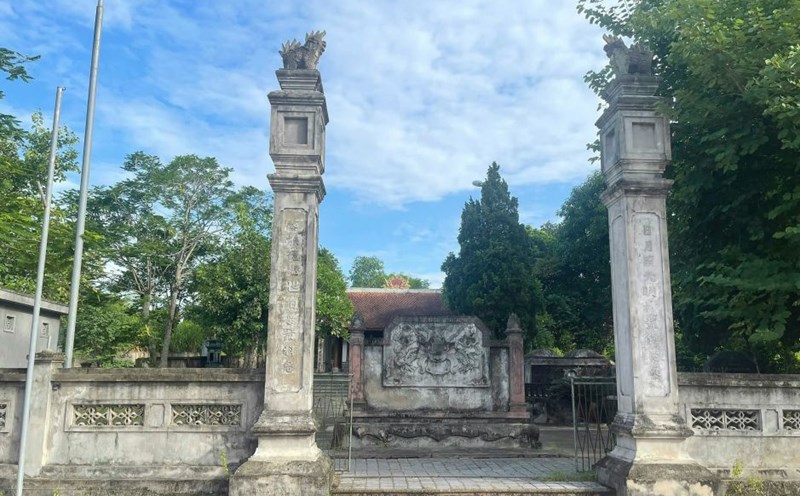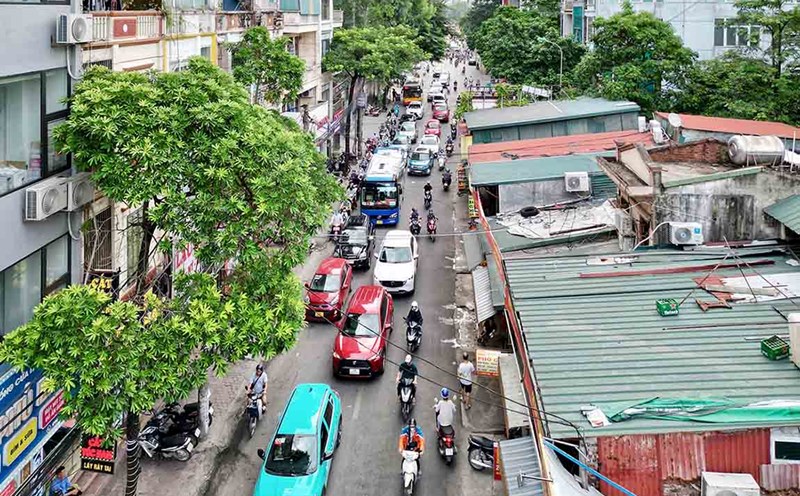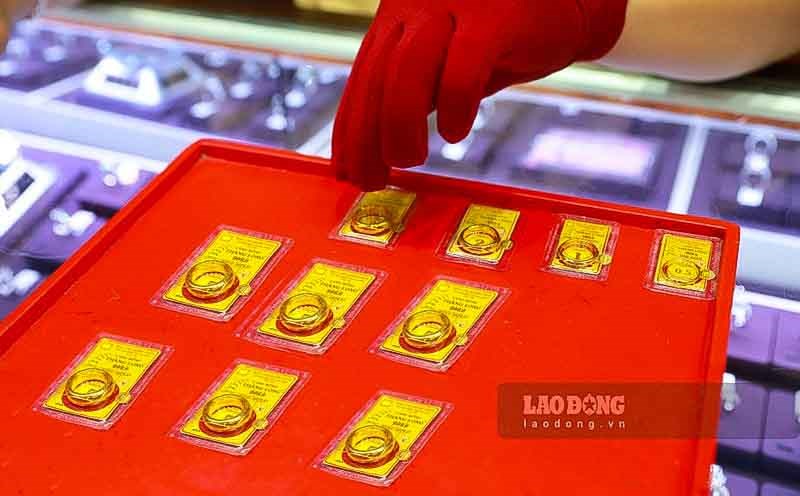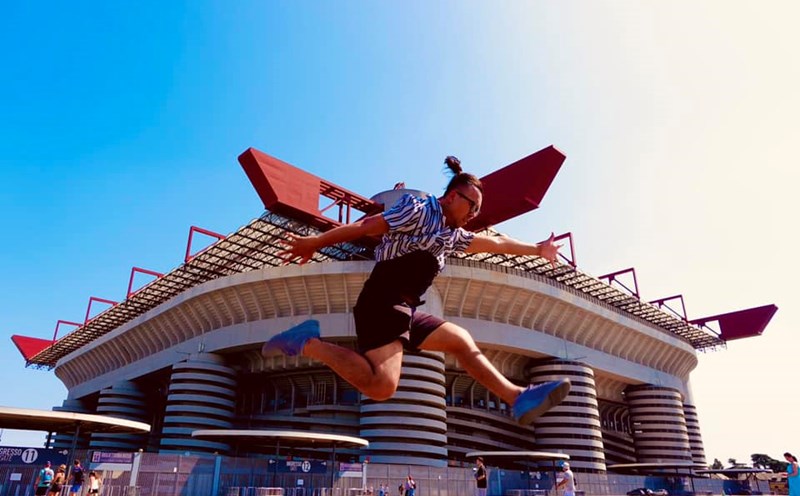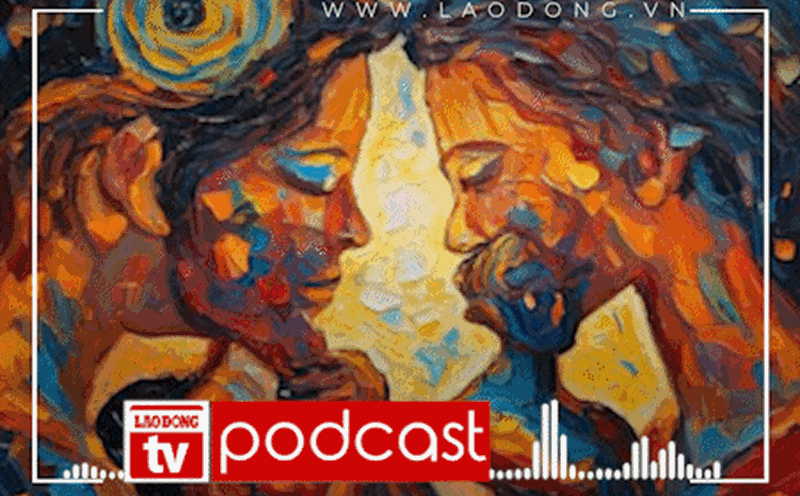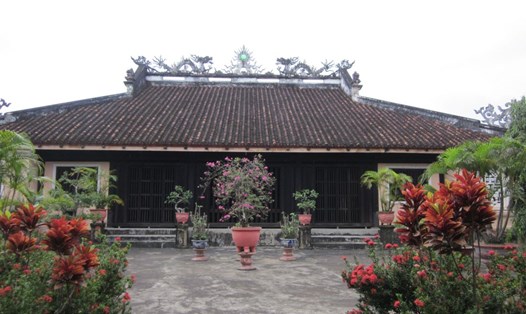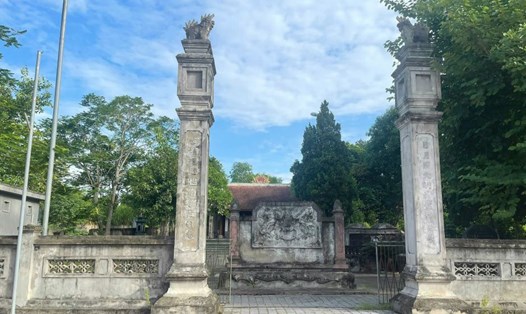This is an ancient temple built during the early Le Dynasty, which the book "Hien chuong loai chi" recorded: "The sacred vestige of a famous mandarin". Today, the ancient temple is located at the foot of Bach Ty mountain, Hong Linh range, on the side of the National Highway 1A bypass, the heritage items are carefully preserved, worthy of his contribution to the country.
Exoneration of a woman wrongly accused of killing her husband
Bui Cam Ho, (1390 - 1483) was from Dau Lieu commune, Thien Loc district (now Hong Linh town), Duc Quang prefecture, Nghe An town (now Ha Tinh). There is a rather interesting legend among the people: "The biography and deeds of Bui Cam Ho in history books and genealogy are recorded quite fully and clearly; but when he entered the folklore, he was mythologized in many ways. There have been many stories about him: When he was born, a tiger roared behind the house, that's why he was named Ho". (Bui Cam Ho. Book of Famous People of Ha Tinh, volume 1, page 134).
According to folklore, when he was young and poor, he was eager to learn. At times, he had to work as a cowherd for a rich family, braving the rain and sun of Hong Mountain and diving in Lam River. Seeing that his son was studious, his parents let Cam Ho study to earn some knowledge. When he grew up, he went to Thang Long to study abroad and had the opportunity to become an official. At that time, there was a case of a "wife poisoning" her husband to death with eel porridge. The judge sentenced him to death and imprisoned him, about to be beheaded. The development of the case was as follows: The husband had just returned from trading in land, and his wife cooked a bowl of eel porridge for him to eat. After finishing the bowl of porridge, he suddenly died. The wife was accused of poisoning her husband to death, the local official arrested her, tried her by sentencing her to prison and beheading.
Poor scholar Bui Cam Ho found out that the people praised her for her virtue, and knew for sure that she was wrongly accused. Cam Ho went to the court to beat the drum to cry out for the innocent woman: “Find out the reason why you know that woman is wronged. You accept to be a witness to clear her name. Just buy a yellow eel, with black spots on its neck, put it in a basin of water and its head raised high like a snake's head, that is the poisonous eel, if you eat it by mistake, you will be poisoned and die immediately. When it is confirmed that it is that kind of eel, the judge who is in charge of the case cooks porridge for the prisoner to eat. The test results were correct. The wife was acquitted. The rumor spread throughout the capital. Although he had not passed the exam, he was still given special treatment by the court.” (Famous people of Ha Tinh, p. 129).
Speak frankly without fear of power
During his time as an official serving the Later Le Dynasty, Mr. Bui Cam Ho held the position of Royal Censor, An Phu Su of Lang Son town, and was reinstated as Royal Censor, and was promoted to Tham Tri Chinh Su, Vice General, equivalent to Boi Tung in the Le - Trinh Dynasty during the Le Nhan Tong Dynasty. He went to the Ming Dynasty twice. That was in the summer, on April 8, Quy Suu year (1433), Thuan Thien 6, King Thai To sent his ministers Tran Thuan Du, Nguyen Kha Chi, and Bui Cam Ho to the Ming Dynasty to pay tribute and explain the annual gold tribute. The second time, on December 20, 1438, King Thai Tong sent Le Ba Ky and Bui Cam Ho as envoys to the Ming Dynasty to report on the local affairs of Thai Binh.
When he was the Censor of the Imperial Censorate, Bui Cam Ho was famous for being an honest official, not afraid of powerful officials, standing up straight to carry out the duty of impeaching officials, exercising the right to admonish when the king did wrong things compared to the decree of the previous emperor: "During the reign of Le Thai Ton, the king did many things against the instructions of the previous emperor. By all means, he and many courtiers tried their best to prevent it; even towards Le Sat - the current prime minister who did many wrong things, abused his power, he also submitted a petition to impeach" (Ibid).
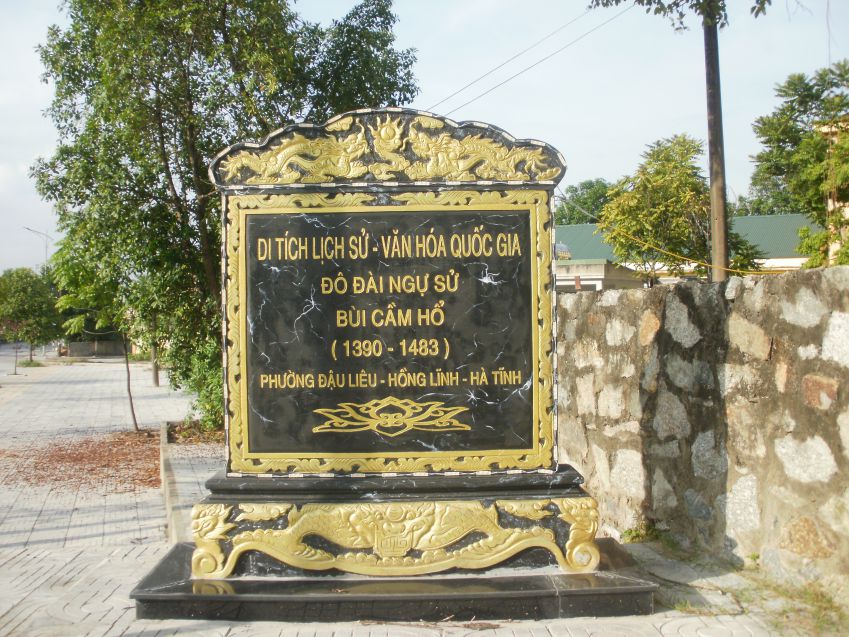
According to historical records, when he was old, King Thai To suspected Tran Nguyen Han and Pham Van Xao of plotting a rebellion. Trinh Hanh Ba, Nguyen Tong Chi, Le Duc Du, and Le Quoc Khi flattered and submitted a secret memorial urging the king to kill Han and Xao. King Thai To knew that Trinh Hanh Ba and his group were cunning and petty people, so he expelled them and issued a decree prohibiting their use as officials. In 1434, Grand Tutor Le Sat considered Trinh Hanh Ba guilty but talented, and ordered someone to record them in the old official register to restore their positions.
Censor Bui Cam Ho reported to the king: “The late emperor ordered that Le Quoc Khi, Trinh Hanh Ba, and Le Duc Du were talented, but they could not be used again. If any of my subjects plotted rebellion, they must be reported, but they cannot be reported. If they were used again, it would be against the late emperor's orders. Moreover, who would use people like Hanh Ba anymore?”
The famous mandarin Bui Cam Ho respected and protected those who were honest and dared to speak the truth. At that time, Le Sat incited King Thai Tong to take money from the national treasury and mobilize people to build many luxurious pagodas. Historical records recorded the court building Bao Thien pagoda, which required heavy manual labor and forced people to serve.
The foreman Cao Su Dang worked hard and secretly said: “The Emperor has no virtue to cause drought and flood. The high-ranking officials take bribes and appoint people who do not work. What is the way of heaven to build such a big temple?” Someone flattered and reported to Le Sat, making the Grand Chancellor angry. The judge Nguyen Dinh Lich said: “He dares to talk about national affairs, he should be beheaded.”
Bui Cam Ho and Nguyen Thien Huu asked for forgiveness for Su Dang, but were rejected by Le Sat, who dragged the master craftsman Cao to the market and beheaded him. At that time, Le Sat held the country's affairs, acted arbitrarily, and was jealous of talented people. He dismissed Trinh Kha from his position, dismissed Bui U Dai from his position, and "chased Bui Cam Ho to the border to silence all spies". Historical records recorded that in September 1434, the Royal Historian Bui Cam Ho was appointed as the An Phu Su of Lang Son.
In July 1437, Mr. Ho was reinstated to his former position and called back to the court: "Appoint the An Phu Su of Lang Son as the Royal Historian, because Bui Cam Ho had previously accused Le Sat of crimes" (Ban Ky Thuc Luc, Vol. 11). As a loyal man, Mr. Ho had been persecuted by Le Sat in many ways, exiled and transferred to a place of "sacred ghosts and poisonous waters", but when he sat on the chair to judge Sat's crimes, he did not take revenge with personal grudges. When the king ordered the beheading of Le Sat to be displayed in the market, Bui Cam Ho dissuaded him: "Sat deserves to die, but Sat was once a great minister. If he displays his body to be displayed in shame, I'm afraid it will be a laughing stock for future generations."
He was worried about the safety and success of the court, and selected national affairs. Seeing that the king had chosen Le Do as the Councilor of the Court, he thought it was inappropriate. Mr. Ho advised: "The position of Councilor is related to the work of government, and only a veteran can do it. Now, how can Le Do, who has made many mistakes, be promoted to that position?"
The King did not listen to the dissuasion. Bui Cam Ho said bluntly: “Since His Majesty ascended the throne, he has often changed the old rules of Thai To. For example, Lu Bo Ty Dong Giam Luong Nang, the former Emperor considered him to be a somewhat knowledgeable person and appointed him as the Deputy Chief of the Council of People, but later he saw that he was too subservient and could not be approached, so he was appointed to the literary team. Now that he is an official, I ask Your Majesty to reconsider” (Ban Ky Thuc Luc. Vol. 11).
In Thach That district, there was a branch of the river that boats could pass through. However, General Le Hien relied on his power to fill the river and claim it as his own, thus preventing boats from passing through. At that time, Tran Hien, who was the Transport Envoy of that district, was an upright and straightforward person who was not afraid of power and intervened. He reported: "Tran Hien is not afraid of the powerful mandarins, so he can appoint Hien as Thi Ngu Su". King Thai Tong unanimously issued the decree.
During the reign of Le Nhan Tong, in April 1449, there was a drought. The king held a ceremony to pray for rain and sent Tham tri Bui Cam Ho and Le Bo Lang trung to pray for rain at Tan Vien and Tam Dao mountains. From then on, history did not record Bui Cam Ho's achievements.
Posterity evaluates "heroes among the contemporary scholar class"
During the reign of Le Thanh Tong, historical records did not record anything about Bui Cam Ho. Some geographical books such as “Nghe An Ky” and “Danh Nhan Ha Tinh” also recorded about him: “Throughout the reigns of three kings, Thai To, Thai Ton and Nhan Ton. When he retired to his hometown, he still took care of the plantations and forests like an old farmer. He and the villagers built a stone dam, blocked the Vet stream, cleared the stream bed, and let the water flow in one direction from the top of the mountain, irrigating his village’s fields of several hundred acres, which had long been drought-prone. He became one of the “ancestors” in the Nghe Tinh region and throughout the country who built dams and dug canals to irrigate the fields” (Ibid., p. 130).
Evaluating him, historian Dr. Le Quy Don commented: “Bui Cam Ho is a scholar who is always honest, upright, and has a noble demeanor. He not only helps the king follow the path of morality, but also makes the mandarins and military generals fear him and not dare to act recklessly” (Le Quy Don Complete Works, Vol. 3, p. 166). During his time as the Deputy Governor of Nghe An, the Imperial Doctor Bui Huy Bich wrote: “He (Bui Cam Ho) went on a diplomatic mission to the North, controlled the border, and handled all matters of the court with integrity; he spoke and discussed matters frankly and decisively, with the demeanor of a current Imperial Historian. He praised him as a hero among the scholars of his time” (Bach Ty Son Than Quan Chi Luoc).
History books record that when the Imperial Censor Bui Cam Ho passed away, the royal court bestowed the title of Binh Quan Dai Vuong Thuong Dang Phuc Than. The temple was built by the people on the right bank of Vet stream, in front of Bach Ty mountain, next to the National Highway 1A bypass, in Dau Lieu ward, Hong Linh town, Ha Tinh province. The temple was recognized by the Ministry of Culture and Information as a National Historical - Cultural Relic of the Imperial Censor Bui Cam Ho. The temple is currently preserving the intangible cultural heritage "Do Dai Festival" also known as "Bao An Festival", one of the major festivals in Nghe An past and present.



